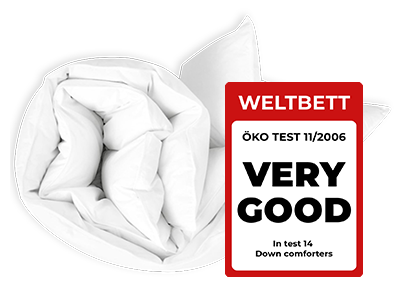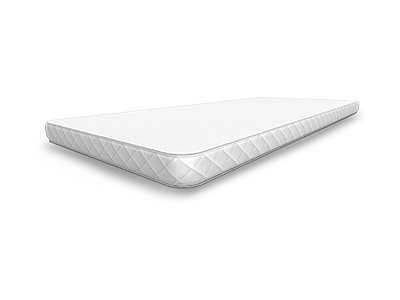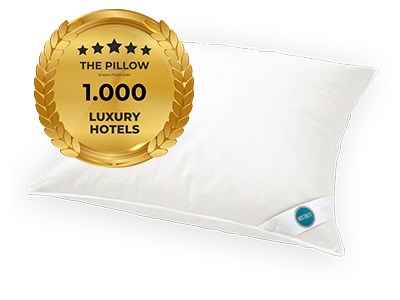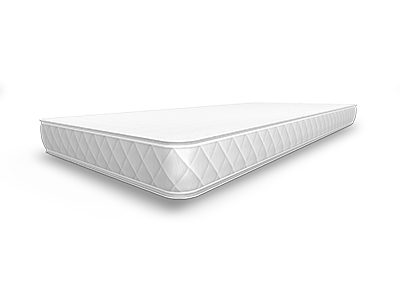Policy
Sustainability
Sustainability Policy
1. Introduction
We have always been a champion of sustainable business practices. In order to take responsibility for our customers and the environment, as set out in our Values and Actions - (New German: Corporate Governance) Principles, we insist on compliance and monitoring of sustainable products and production standards in relation to our core business. Our Sustainability Policy serves both our business partners and ourselves as a guide for implementing sustainable practices in the design of products, production processes and complete supply chains.
2. Application range
The Sustainability Policy applies to all our products, our internal production and logistics processes and the supply chain to the source of our raw materials.
3. Commitment to sustainability
For all relevant products, Weltbett GmbH (WELTBETT) demands compliance with all legal regulations in the area of sustainability. For the manufacture and trade of products, the "four key criteria of sustainability" must be considered:
- 100% renewable raw materials or 100% recycled raw materials for our products
- 100% recyclable products
- 100% sustainable production without permanent (CO2) footprint
- 100% application of the same demanding standards for packaging
We are committed to sustainable products, packaging and production standards at all stages of the supply chain.
WELTBETT is pursuing the goal of actively expanding its range of 100% sustainable products, production and packaging that originate from production sites that demonstrably apply sustainability standards that go beyond the legal requirements. The basic conditions for this are excellent: Our naturally filled pillows, blankets and toppers are eighteen (18 !) times more sustainable than comparable synthetic products. In addition, our suppliers are obliged to comply with minimum standards at all stages of the production chain, i.e. from the farm through intermediate stages to the sales business (see Values and Trading / Corporate Governance Principles / BSCI Code of Conduct). WELTBETT Is a member of the Business Environmental Performance Initiative BEPI and implements its standards and codes of conduct along the entire supply chain.
4. Requirements and implementation
We are actively committed to compliance with sustainability standards and have already taken concrete measures to this end in the following areas, among others:
We have already taken concrete measures in the following areas:
Customer sustainability standards
Our customers are among the strongest drivers and champions of the industrial convergence of our industry towards sustainability standards for products, packaging and production. We work with our customers to help them formulate their standards and objectives and monitor progress towards achieving them. We follow our highest customer standards.
Requirements on our products and raw materials
WELTBETT purchases products exclusively from manufacturers who comply with all local and international sustainability standards and/or are certified accordingly. This enables us to avoid the use of raw materials and semi-finished products that contribute to environmental pollution.
Textile-related environmental topics
WELTBETT follows all textile-related environmental issues very closely and always strives to be at the forefront of the latest standards, tests and labels.
- All our products are Oekotex certified and tested by third parties. Our Ökotex certification proves that no harmful substances are emitted - neither in our fabrics nor in our fillers
- All natural fillings are Daunasan and Downafresh certified, which guarantees hygiene according to EN 12935.
- We have been audited and certified according to the demanding standards of the Greenpeace DETOX campaign by neutral third parties in accordance with the wet end regulation. They check that no toxic water is released into the environment in our entire supply chain, which is particularly sensitive to bleaching and dyeing processes for the fabrics of our products. Our products therefore comply with the most demanding Ökotex Appendix 6 Standard.
We are increasingly buying organic, GOTS and Fairtrade certified cotton
Inspections by neutral third parties
- WELTBETT uses the following audited third party standards to monitor compliance with these guidelines:
- WELTBETT is certified for the use of Oekotex for its fabrics and fillings
- WELTBETT provides NOMITE labels for products suitable for allergy sufferers
- WELTBETT issues Downafresh labels for compliance with EU hygiene standards
- WELTBETT fabrics are certified skin-friendly by the Hohenstein Institute
- WELTBETT and our entire supply chain are IDFL certified and audited.
Cleaning and washing agents
In the development of detergents, the detergent industry is subject to the legal provisions of the chemicals laws of various countries. We comply with the strictest of all standards that we find in the countries where we operate. For example, testing detergent ingredients on animals is prohibited as long as there are scientifically satisfactory and practical alternatives to the tests in question. Furthermore, all detergents used by WELTBETT are vegan and biodegradable, which means that no animal ingredients are used in their production and they leave no sustainable footprint on the environment.
No products with exotic or endangered species
We also reject products that contain endangered species. This includes all species classified as endangered, vulnerable or threatened with extinction on the IUCN Red List or all species listed in CITES (Convention on International Trade in Endangered Species of Wild Fauna and Flora).
5. Active implementation
At WELTBETT we implement our sustainability requirements in close cooperation with our suppliers. The implementation of our internal requirements is carried out by the purchasing departments with the support of the responsible drivers of the values and trade / corporate governance principles. Specific requirements, goals and measures are also implemented in close cooperation with them. We monitor the implementation at our suppliers and carry out risk-oriented assessments. We reserve the right to have the requirements of our Sustainability Guideline checked by internal and / or external audits, if necessary. In addition, we expect our suppliers to ensure that all employees responsible for handling products, machines or packaging that have an impact on the environment are effectively trained on a routine basis to reduce environmental pollution to a minimum. They are qualified to promote good sustainability standards in their areas of responsibility. This Sustainability Policy is part of our Terms and Conditions. In cases where non-compliance with our policy is identified, suppliers must submit corrective action plans that clearly state how relevant non-compliances can be resolved within a specified timeframe. The managing directors are regularly informed about the status of implementation.
We strive to continuously improve products in our range to make them more sustainable. In this context, we always consider the wishes of our customers and the market environment. The transition to more sustainable alternatives includes:
- Extension of the range of certified organic products,
- Expansion of the range of vegan products
- Expansion of the product range to include GOTS and Fairtrade certification
- Implementation of pilot projects to promote high sustainability standards.
- Improving the sustainability conditions for conventional products in cooperation with our suppliers.
As we want to offer more sustainable products, an exchange with external partners is essential. We are therefore in close contact with NGOs, representatives of science and stakeholders.
Pilot projects and measures
WELTBETT actively implements sustainable practices in our products, packaging and production processes as required. Here are some of the pilot projects that WELTBETT has already implemented today:
- Solar energy production for all heat and hot water in our China factory
- The use of a highly efficient combined heat and power plant in the German factory, which in the winter months uses surplus heat and heat from the air compression units to generate electricity that we need for our production
- Our water recycling unit has helped us save water and keep our costs low since the early 1990s.
- The use of exclusively biodegradable detergents has enabled us to dispose efficiently of the little waste water we have.
- We are the first bed manufacturer to have equipped all its facilities, including factories and warehouses, with energy-saving lamps (and now often LEDs) as part of the EUROPEAN green lighting initiative back in the early 200s.
- Triple-glazed energy-saving windows in all facilities
- If we do not generate our own electricity as a by-product of heating our plants, we buy 100% from renewable sources.
- This 100% clean electricity is also used to power our entire fleet of in-house forklift trucks.
We are committed to maintaining these measures, extending them and adding further measures as the technology becomes available. We are also part of other pilot projects and initiatives that are helping to shape our industry and its sustainable performance:
- We have received top marks and already in 2006 we won the first "Ökotest" on eiderdowns. We are still the only manufacturer whose duvets have ever been rated VERY GOOD.
- Best marks of all bedding manufacturers at mcgindex.com for suppliers of sustainable bedding
- Partner in the pilot program of the first international hospitality providers to create a chemical footprint; led to the best position of a bedding manufacturer
- Completion of the self-assessed STeP audit for sustainable production
Regular evaluations
Every year, the current sustainability guideline is evaluated and adjusted if necessary. In the long term, this is the only way to ensure sustainable and responsible procurement of our products, packaging and the development of our production. In addition, we formulate targets and evaluate the extent to which these targets have been achieved on an annual basis.
 en
en 
 The Duvet
The Duvet
 The Topper
The Topper
 The Pillow
The Pillow
 The Footer
The Footer